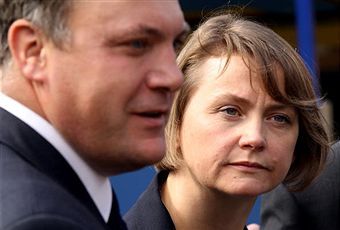 Like husband, like wife. Yvette Cooper has begun shadowing Theresa May where Ed Balls stopped: by lacerating Nick Clegg’s naïveté in believing that control orders should be
abolished. There is a faint note of animus in her politicking too. ‘National security,’ she said, ‘should not be about keeping Nick Clegg safe in his job.’
Like husband, like wife. Yvette Cooper has begun shadowing Theresa May where Ed Balls stopped: by lacerating Nick Clegg’s naïveté in believing that control orders should be
abolished. There is a faint note of animus in her politicking too. ‘National security,’ she said, ‘should not be about keeping Nick Clegg safe in his job.’
The government invited Cooper’s charge with its own crass political calculation. Spinning the new measures as a Liberal Democrat victory could only elicit that response from an opposition that is intent on exploiting the government’s broad weakness on law and order.
In fact, as Lord West has remarked, the government has not even come close to rescinding the substance of New Labour’s control orders. If anything the new ‘surveillance orders’ are another Liberal Democrat defeat. Lord Carlisle has insisted that curfews, limitations on internet use and restrictions of freedom of association remain in all but name; curfews have been replaced by a measure called the ‘overnight residence requirement’, an absurd tautology even by the standards of bureaucracy. And the new name ‘surveillance orders’ is more suggestively sinister than the robotic blandness of ‘control orders’.
Senior Liberal Democrats sense this. With a paternal air, Lord Carlisle, a Lib Dem peer, is busy expressing his pride at how the government ‘took a very mature view’ and put security ahead of principle; convinced that control orders were, in the words of Douglas Murray’s recent Spectator cover piece, ‘an inelegant system’ that thwarts would-be jihadis. But having intimated that politics influenced the reform of national security arrangements, the government will struggle to rebutt Cooper’s vehement onslaught.
PS: For contrasting views on the substance of the reforms, you can read the Centre for Social Cohesion’s Robin Simcox and Patrick Mercer MP over at Conservative Home.






Comments